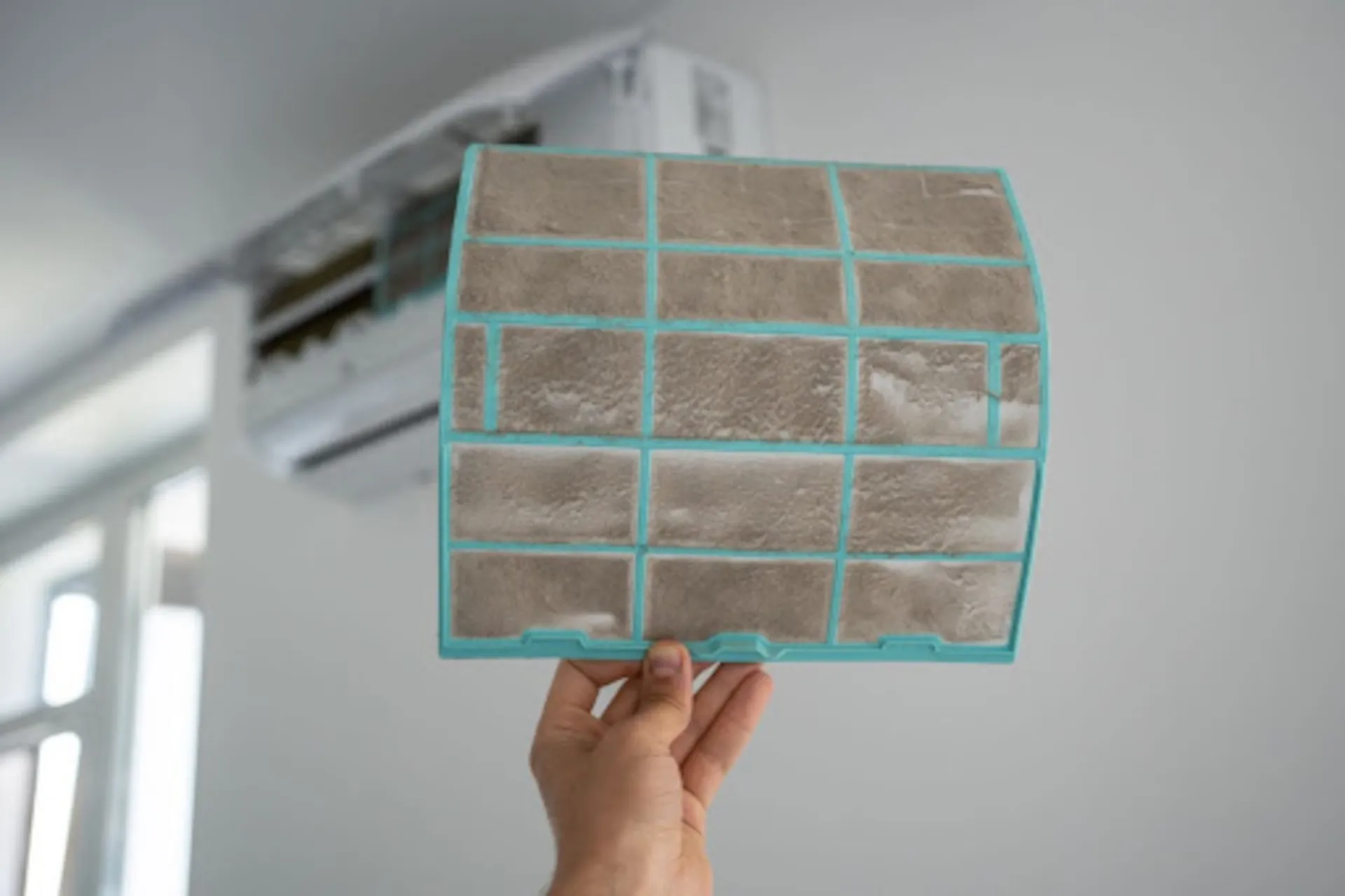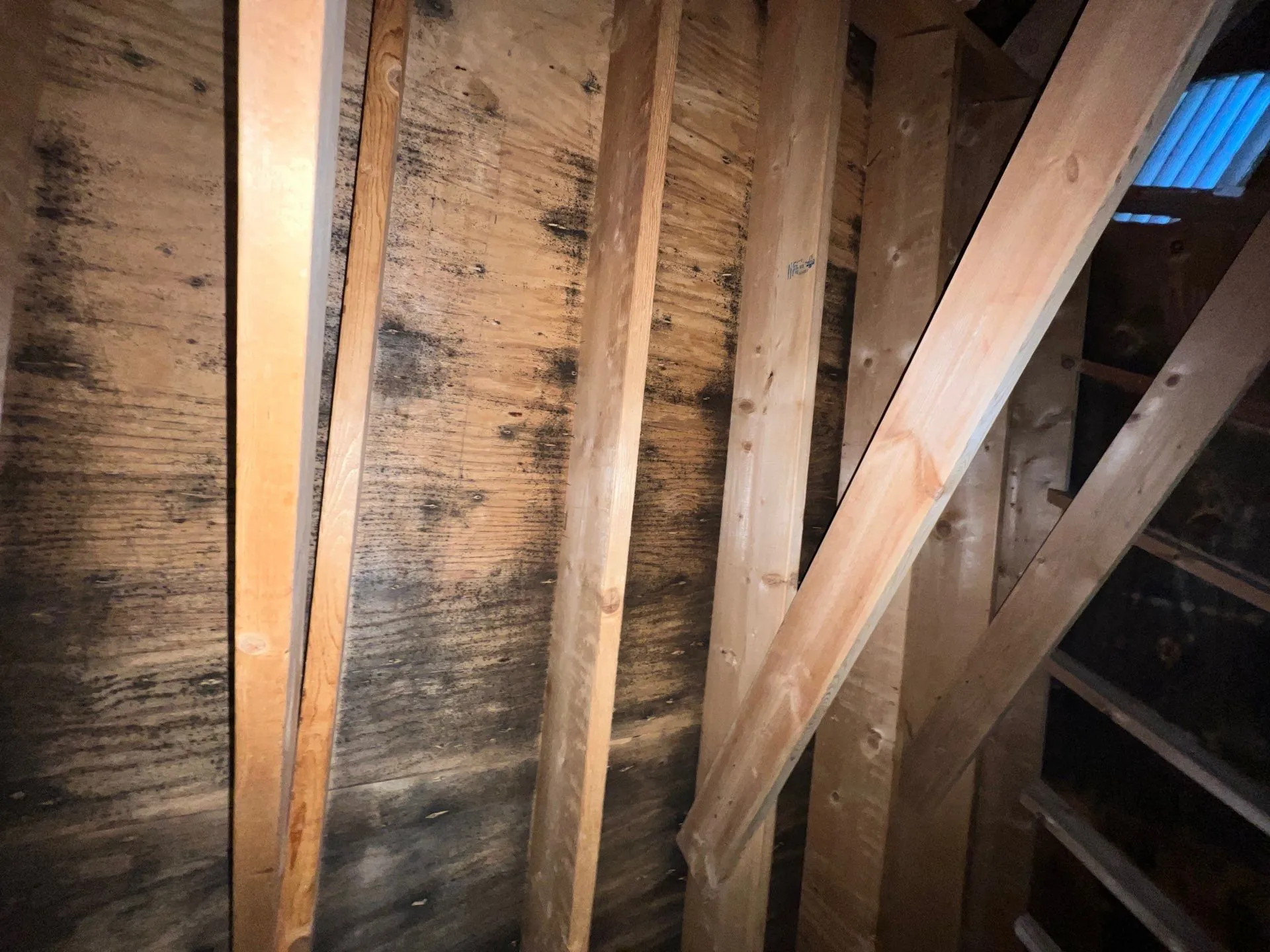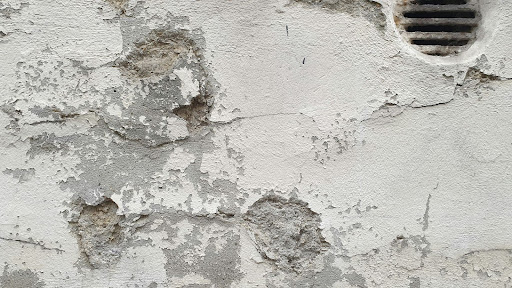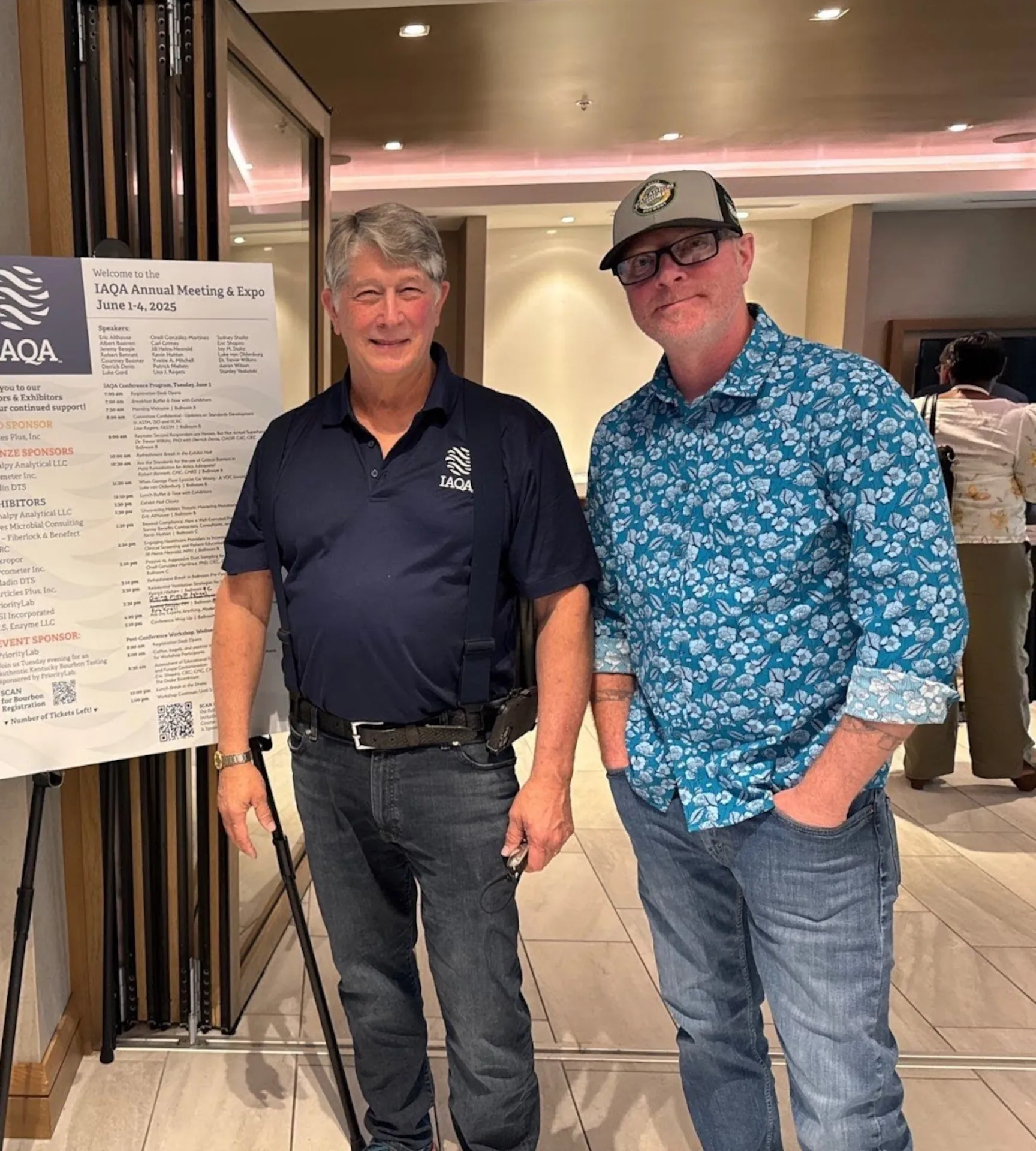

Winter brings a unique set of challenges that can degrade the air inside your home if you’re not prepared. From stale air and dry conditions to dust buildup and increased exposure to pollutants, it's the perfect time to take proactive steps to protect your indoor environment. Here's how to winterize your home for better air quality this season.
Read This Blog
Understanding the difference between black mold and the toxins it produces is essential for protecting both your health and your home. This blog breaks down what each term really means, how they’re related, and what you need to know if you think either one is present in your living space.
Read This Blog
Indoor air quality plays a critical role in the health, comfort, and overall well-being of your family, especially in a state like Ohio, where seasonal weather changes can greatly influence the air inside your home. From dry winters to humid summers, families face a wide range of environmental factors that affect what they breathe every day.
Read This Blog
Bathrooms are one of the most common places for mold to grow in a home, and for good reason. They're warm, moist, and often poorly ventilated, making them the perfect environment for mold to thrive. While mold can be unsightly, it’s more than just a cosmetic issue. Left untreated, it can cause health problems and lead to expensive damage.
Read This Blog
Humidity and moisture are two of the primary factors that support mold development, and both tend to spike during the summer. Understanding how this seasonal shift influences indoor environments is key to preventing long-term damage to your home and potential health hazards. Take a closer look at why mold growth in summer is a common issue and what you can do to keep it under control.
Read This Blog
Learn what lead dust is, why it’s dangerous, and how to prevent exposure in older homes with safe renovation, cleaning, and testing methods.
Read This Blog
Explore Farsight’s insights from the 2025 IAQA Expo—from smart tech and moisture control to rising IAQ standards shaping safer homes and buildings.
Read This Blog
Popcorn ceilings, once a popular interior design trend, are now a source of concern for many homeowners and buyers. Known for their textured, cottage-cheese-like appearance, these ceilings were favored in homes built from the 1950s through the 1980s for their ability to hide imperfections and dampen sound. However, what many don't realize is that beneath that bumpy surface could be a hidden health hazard: asbestos.
Read This Blog
Poor ventilation leads to moisture, odors, and allergens. Learn how to spot the warning signs early and improve your indoor air quality effectively.
Read This Blog
Discover 5 easy ways to improve air circulation and quality indoors. Reduce allergens, control moisture, and keep your home fresh and healthy.
Read This Blog
Discover how to control basement moisture, prevent mold, and protect your home’s health and structure. Get expert tips and when to call professionals.
Read This Blog
As homeowners become more proactive about creating healthier living environments, testing for lead has become just as important as checking for mold or asbestos, especially in real estate transactions or remodeling projects. It’s a foundational step toward truly clean air and safe occupancy, and it’s especially crucial for homes built before 1978 when lead-based paints and varnishes were widely used.
Read This Blog
The safe occupancy of a home or workplace requires good indoor air quality. Although indoor air quality can consist of many contaminates such as carbon dioxide, carbon monoxide, volatile organic compounds, and odors, these are gases. This discussion is about a contaminant consisting of both particles and microbial debris. Air washing is a method of purging the home or building of debris that is on vertical and horizontal surfaces that one would not normally try to remove.
Read This Blog
Learn how your furnace filter works, why MERV ratings matter, and how to choose the best filter to improve indoor air quality and HVAC efficiency.
Read This Blog
Fogging doesn't remove mold or fix moisture issues. Learn why true mold remediation requires physical removal, not just spraying chemicals.
Read This Blog
Understanding key lead paint terms like lead hazards, paint stabilization, and containment methods is essential for safe property management. Learn about different approaches to handling deteriorated surfaces and how to stay compliant with local regulations. Whether you’re a homeowner or contractor, knowing these terms can help you manage lead risks effectively and maintain a healthy environment. Explore clear definitions and practical guidance for safer property maintenance.
Read This Blog
In Ohio, contractors working on homes built before 1978 must follow strict lead-safe practices due to the risks of lead-based paint, as outlined in the Residential Lead Paint Reduction Act of 1992 (Title 10). The EPA and HUD created the Lead Safety for Renovation, Repair, and Painting (RRP) program, requiring contractors to be EPA-certified to safely handle lead paint during renovations. Additional licensure is required for lead abatement, and homeowners should ensure their contractors comply with these regulations to prevent harmful lead dust exposure. Proper certification, safe work practices, and post-renovation testing, such as a Clearance Test, are essential for protecting families and maintaining compliance with state laws.
Read This Blog
Asbestos, a hazardous material found in many older homes, poses significant health risks if disturbed. This blog explores which building materials are most likely to contain asbestos, including plaster, floor tiles, and insulation, particularly in homes built before 1980. It also provides important safety guidelines for homeowners, emphasizing the need for proper handling and professional removal to prevent long-term exposure. Whether you're renovating or simply maintaining your property, understanding asbestos risks is crucial for protecting your family's health.
Read This Blog
Explore the pros and cons of various home mold test kits in our detailed guide. Learn about petri dishes, microscope slides, and swab methods to choose the best option for your needs. Understand how each method works, its accuracy, and what to consider when using them. Get expert insights on ensuring your home’s air quality.
Read This Blog
Discover the key differences between mold and mildew, their growth conditions, and appearances. Learn effective removal techniques to maintain a safe and healthy home environment. Our detailed guide will help you identify and address these common issues, ensuring your property stays protected.
Read This Blog
Discover common contamination in grains, nuts, and other foods, and learn how proper storage and handling can help reduce risks. This guide offers a starting point for those with health concerns related to mycotoxins, providing practical advice for everyday prevention.
Read This Blog
Part one of a two-part series, dives into the presence of mycotoxins in homes, with a focus on those originating from water-damaged environments. In homes, mycotoxins are typically associated with mold growth due to water damage and can cling to surfaces and furniture. In this blog, various mycotoxins are described, highlighting their potential health impacts.
Read This Blog
Are you curious about dangerous mold colors? Mold can appear in various hues, like green, black, or gray. But color doesn't determine danger. Mold identification through lab analysis is key to understanding health risks.
Read This Blog
Essential oils are a concentrated liquid made by extracting plant fragrances or organic compounds. Many people use essential oils daily, but it is important to be aware of how it can affect you. Discover the wonders of essential oils: their uses, benefits, and risks. Gain knowledge on safety measures, regulation concerns, and expert advice for using essential oils effectively.
Read This Blog
We answered eight common questions we were asked in 2023. From tackling the 'dirty sock syndrome' to addressing respiratory problems, sweating windows, and mold concerns, we've got you covered. Discover if painting over mold is a viable option, unravel the fogging trend, and understand the risks of lead paint. Read into insights about mycotoxins in your body and learn about managing asbestos in your HVAC ductwork. You don't want to miss this 'Year in Review"!
Read This Blog
Discover the hidden threat of dust mites in 84% of American homes. Learn practical prevention tips, from encasing mattresses to using acaricide-treated fabrics. This blog will help you understand why killing dust mites isn't enough and explore effective cleaning methods, including hot water washing and steam treatments. Take control of your indoor environment!
Read This Blog
Not only does mold damage building materials, but it also has health risks due to mycotoxin exposure. Protect your home and health by preventing mold growth through early detection of elevated moisture. Learn to identify signs of moisture such as staining and odors, in common areas like your basements and attics. Address these issues as quickly as possible with the help of professionals - don't let the physical and financial consequences escalate!
Read This Blog
Is your drinking water safe? This is an issue that affects every single household and it's not something you want to take lightly. It is essential that you understand the threat and find solutions to keep the drinking water in your home safe! In this blog post, we will discuss just that. You will see the effects of lead in your drinking water, who is at the highest risk, and how to fix this issue.
Read This Blog
Let’s talk about workplace safety and a silent danger - asbestos. As a company specializing in indoor air quality, we believe it’s essential to understand the potential dangers of asbestos and how to safeguard against them. Today, we’ll discuss the risks of asbestos exposure and the need for precautions to protect both employees and the environment.
Read This Blog
Mold growth in homes can be a persistent and damaging problem. Not only does it compromise the structural integrity of your property, but it also poses health risks to you and your family. The mantra that people should remember is “mold is the symptom and water is the problem” Fortunately, with proper preventive measures, you can minimize the chances of mold taking hold in your home. In this comprehensive blog post, we will explore effective tips and tricks to prevent mold damage and create a healthier living environment
Read This Blog.png)
Lead paint was available for use in residential homes until 1978. Lead was added to paint because it allowed for a wider range of color pigments. However, lead poses significant health risks, especially for children and pregnant women. In this brief blog post, we will summarize the sources of lead paint in the home, the associated health hazards, and essential preventive measures to protect your family from lead exposure.
Read This Blog
Many building materials can contain asbestos. Since these materials are not obvious, we need to be able to be able to answer several questions; how can we identify its presence in our homes? What are the risks to exposure? What steps can we take to reduce those risks for exposure?
Read This Blog
The Amish community is well known for its traditional way of life; agricultural, simple, horse and buggy, no electricity. This distinctive lifestyle, and using unique construction techniques, can present significant challenges to maintaining optimal indoor air quality (IAQ).This discussion will describe some of the methods of approaching the completion of an indoor air quality assessment (IAQ) in an Amish home.
Read This Blog
Discover the symptoms of mold exposure, from respiratory issues to allergies. Learn how to identify the symptoms and protect your health and home!
Read This Blog.JPG)
The dangers of lead exposure on the human body are well known. Lead can cause nervous system and kidney damage, decreased intelligence, attention deficit disorder, learning disabilities, and speech or language problems. This blog will discuss what is a lead-based paint, the health effects of lead exposure, and how to prevent the exposure.
Read This Blog
During the spring, summer, and fall, we can open our windows to let fresh air into our homes; but during the winter, we are energy conscience and close everything up nice and tight. In this article, we discuss three issues that affect the indoor air quality of a home during the winter.
Read This Blog
If you are a homeowner, or property owner, and need to hire a contractor to remove mold from your home or building, the format and content of the two or three proposals you review need to be similar. Part 2 discusses Warranties, Final Report, and Billing Methods.
Read This Blog
If you are a homeowner, or property owner, and need to hire a contractor to remove mold from your home or building, the format and content of the two or three proposals you review need to be similar. This article will help in understanding what to expect, the content, and how compare the proposals you review.
Read This Blog.jpg)
We breathe 3,000 gallons of air a day. Newborn babies often breathe 30 to 60 times per minute. It is a good idea to refresh our understanding and priority for controlling the moisture content of wood on a job site.
Read This Blog
New homeowners depend on the builders to construct a home that is safe to live in. So, lets talk about the timeline for mold growth and what are the typical contaminants we find.
Read This Blog
Part 4 of a 4-Part series on the Preparation of Mold Remediation Protocols. This article goes over Post Remedial Verification, Project File Documentation, and Examples of Inappropriate Protocol Content.
Read This Blog
Part 3 of a 4-part series on the Preparation of Mold Remediation Protocols. This article discusses Remediation Techniques, waste disposal, and methods for cleaning.
Read This Blog
Part 2 of a 4-part series on the Preparation of Mold Remediation Protocols. In this article, we will discuss handling contents and preparing/maintaining a containment area.
Read This Blog.png)
Part 1 of a 4 part series on the Preparation of Mold Remediation Protocols. The goal of a Mold Remediation Protocol (MRP) document is to provide a guideline for the remediation contractor to complete the project in accordance with current industry standards and demonstrate that the building is safe to occupy.
Read This Blog.png)
If a home was built prior to 1978, then it is possible there may be some lead paint and contractors should know that the State of Ohio and EPA has rules to follow. This article includes some of the highpoints for what to consider and where to find more information.
Read This Blog
A pre-1978 home may have lead-based paint either on the interior or exterior surfaces. This article includes some of the high points for what to consider when buying an older home and where to find more information.
Read This Blog
The presence of mold may not be immediately apparent, and symptoms of mold exposure can be subtle and easily overlooked. Explore the hidden dangers of mold and how to recognize and address mold damage in your home or building.
Read This Blog
Asbestos was used in many building materials throughout the 20th century. Now known to be a carcinogen, It can cause serious health problems when its fibers become airborne and are inhaled.
Read This Blog